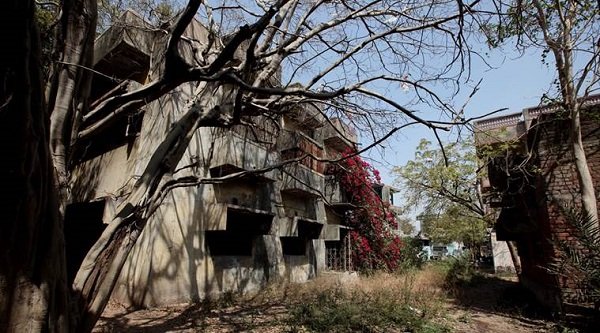
Abdul Hafiz Lakhani | Caravan Daily
AHMEDABAD — While hearing the cases of the 2002 Gujarat pogrom, a bench of India’s Supreme Court had said, “When ghastly killings take place in the land of Mahatma Gandhi, it raises a very pertinent question as to whether some people have become so bankrupt in their ideology that they have deviated from everything which was so dear to him (Gandhi).” Now this above quotation of Supreme Court fits Special Investigation Team (SIT) headed by former director of CBI R.K Raghwan in wake of Gulberg society killing in 2002.
A key witness in the Gulberg massacre case has claimed that the then Gujarat chief minister Narendra Modi had abused the former Congress MP, Ehsan Jafri, when the latter had called him desperately seeking help ahead of the carnage that unfolded.
Sixty-nine people including Jafri were torched to death by a mob on 28 February, 2002, a day after the fire in Sabarmati Express in Godhra. Imtiyaz Saeedkhan Pathan, an eye witness of the Gulberg society massacre, told the special court in Ahmedabad that Jafri was frantically trying to call police for help. Jafri’s house had turned into a refuge where many people had taken shelter. When people asked Jafri as to why police was not coming for help, the former MP said he would call chief minister Modi. “When I asked Jafri what was Modi’s response he said that there was no question of help coming and he instead got abuses (from the chief minister).”
Pathan told the judge: “The (Gulberg) society was surrounded by a violent mob and residents herded to Jafri Saab’s house. The former MP told us he will call Modi for help. After he put the phone down, I asked Jafri Saab about Modi’s response. He told me that instead of sending help, Modi showered abuses on him.”
Jafri Saab had also sought help from senior cops, said Pathan. “The then police chief P C Pande and Meghaninagar PI K G Erda came here. Jafri Saab asked them for bandobast (security). The cops promised to send help soon and left. In a few seconds, a 4,000-strong mob gathered outside the society.”
The society members closed the two main gates of the society, Pathan recounted. “The mob threw burning rags to smoke us out. Jafri kept calling police officers and political leaders for help, but in vain. Around 1.30 pm, the mob used a gas cylinder to bring down the wall and rushed in with swords, knives and cans filled with fuel. Before my eyes, they cut down my father’s elder brother. The mob poured petrol on Jafri’s house and set fire. Kids and women ran out. The mob killed my mother and grandmother.”
“The mob was abusing Jafri Saab. He told the mob: ‘I will come out if you will be satisfied by killing me.’ The moment he opened the gate, some men dragged him to the road and screamed ‘Jafri mil gaya’. Pathan added, “The mob raped my sister-in-law and other women before killing them. They also killed my nephews Shahdab Khan and Yusuf.”
Pathan, who identified several accused in the court, said that the police came only around 4.30pm to help the mob.
Yet the Special Investigation Team (SIT) found nothing to substantiate the allegation that slain Congress leader Ehsan Jafri had called up Narendra Modi’s office for help when rioters reached the Gulberg Housing Society where 39 people were massacred and 30 went missing.
Zakia Jafri, the widow of Jafri, has been running from pillar to post in the quest of justice. However, the SIT did not even record her statement. The two more witnesses Roopa Mody and Imtiyaz Pathan who were present when VHP and Bajrang Dal workers were involved in cannibalism said that Ehsan Jafri had called several senior police officers and leaders but no help arrived.
More important, those who planned and perpetrated the whole massacre have managed to get away. The names of the main accused failed to appear in the charge sheet filed in the Gulberg massacre case. The victims of the massacre have argued that the whole thing was pre-planned in order to target Muslims living in the society. However, the defense, in its reply, stated that the mob turned violent only after Jafri had fired several rounds on them.
Some of the acquittals are interesting including the acquittal of police inspector KG Erda, the only cop who was arraigned and put on trial in the case for dereliction of duty and destruction of evidence. He was accused of ineffective firing and leaving the spot when his presence was needed to save precious lives in Gulberg Society.

